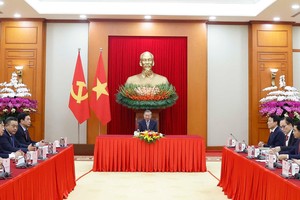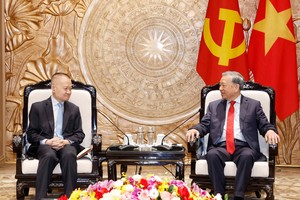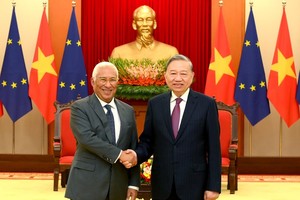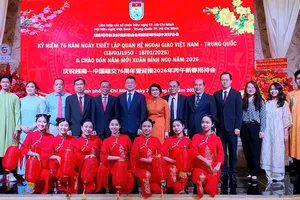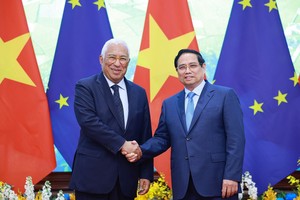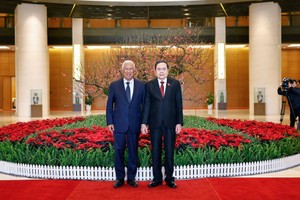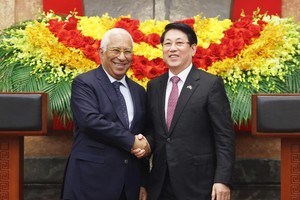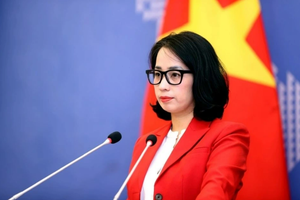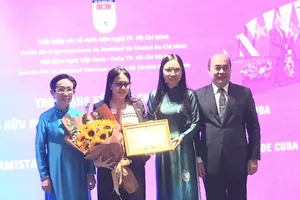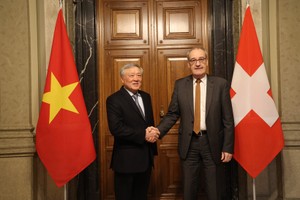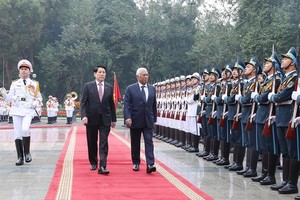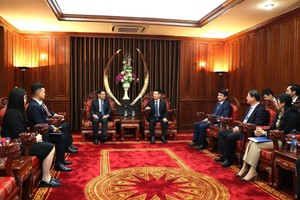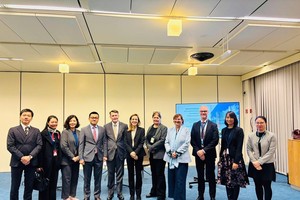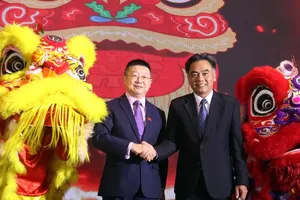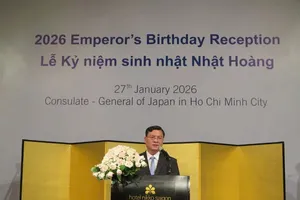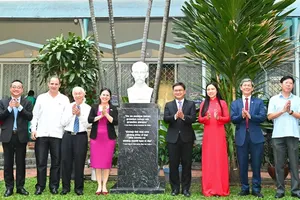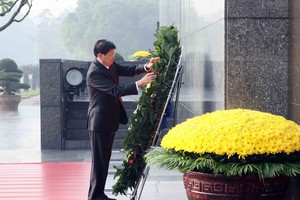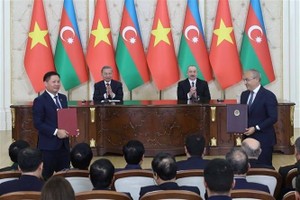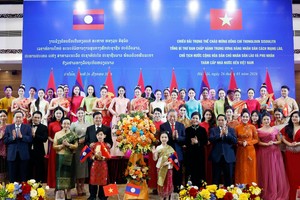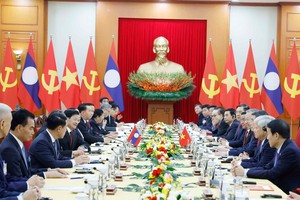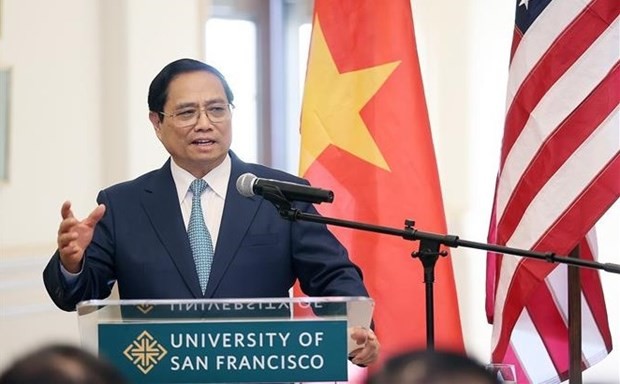 |
Prime Minister Pham Minh Chinh speaks at the University of San Francisco. (Photo: VNA) |
This visit was part of his trip to the US for the high-level week of the 78th session of the United Nations General Assembly and bilateral activities in the country.
The leader stressed that on the basis of the newly-established Comprehensive Strategic Partnership, enhancing education cooperation matches Vietnam’s priority, era trends, as well as collaboration orientations of both countries.
Cooperation in education training, especially high-quality personnel training, is a focus of the Vietnam-US relations as mentioned in a joint statement issued by the two countries’ leaders, he continued, adding that Vietnam takes high-quality personnel training as one of the major breakthroughs.
Chinh also lauded contributions by the USF to the strong developments of the bilateral education cooperation over the past time, saying there are about 50 cooperation programs between Vietnamese and US educational institutions.
The PM emphasized that Vietnam always wants to seek and expand cooperation opportunities with US educational institutions, including the USF, and expressed his hope for stronger collaboration between the university and Vietnam, with more diverse, intensive, extensive, effective, and practical formats.
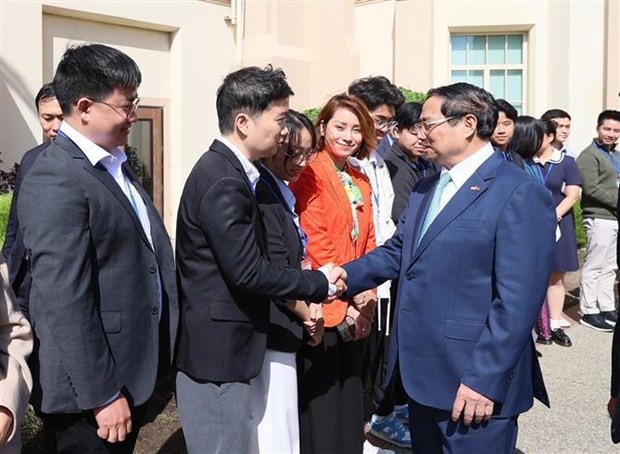 |
Prime Minister Pham Minh Chinh and lecturers and students of the university (Photo: VNA) |
He suggested the university grant more scholarships to Vietnamese students, focusing on new areas like innovation, digital transformation, green transition, circular economy, and sharing economy.
Chinh urged Vietnamese students in the US to study harder, thus contributing to the development of both nations as well as their relations.
Founded in 1855 as the first university in San Francisco, the USF is a private Jesuit university with a distinguished history in the sciences, social sciences, humanities, education, law nursing, and business.
According to its President Paul J. Fitzgerald, about 80 Vietnamese students are studying at the university, the third biggest number after those from China and India.
Agreeing with the President’s views on contributions by religions in Vietnam’s history, Chinh highlighted their important role in the formation of the Vietnamese culture, and national construction and defense.
As a multi-ethnic and multi-religious country, the Vietnamese State always consistently pursues the policy of respecting and ensuring the right to freedom of belief and religion, and the right to follow and not follow any religion; guaranteeing equality and non-discrimination based on religion and belief; and protecting the activities of religious organizations by law, he affirmed.
